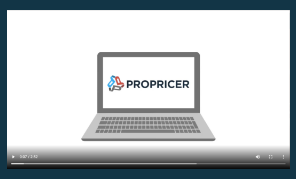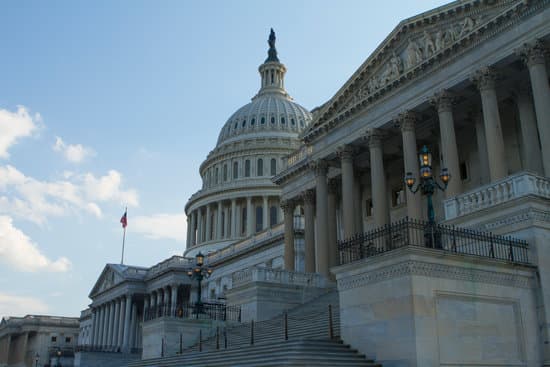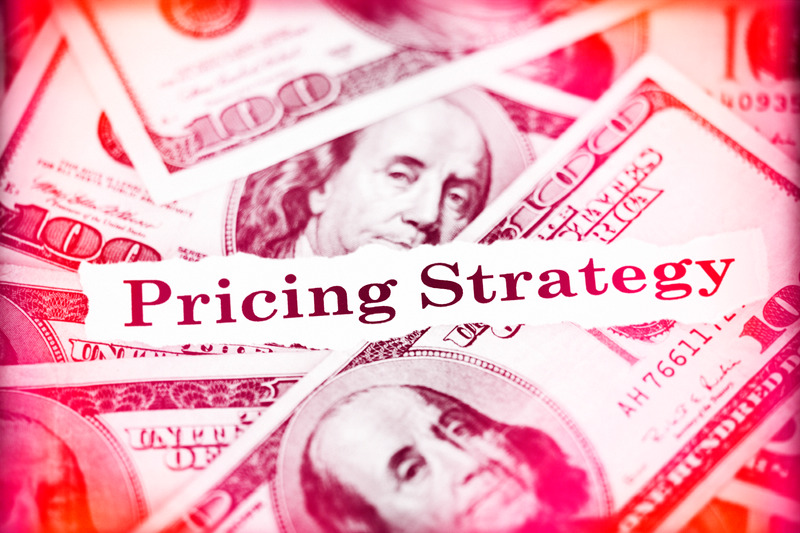The process of landing a government contract can be akin to a thriller movie. You gather your team, sort through meticulous details, and pen your best pitch. You think you’ve nailed it until—you're asked to reconsider your proposal. Suddenly, you're in the movie's last reel, and the stakes couldn’t be higher.
If you’re involved in government contracting, you've likely come across the term "Best and Final Offer." It's a critical juncture in the contracting process and one you'd do well to understand thoroughly.
Though there can be numerous discussions between an agency’s shortlist of contract contenders and the agency itself before a bid award, there will only be one request for a revised proposal. The decision to offer you an award hinges on your scoring in this Best and Final Offer phase.
There are two common reasons for an agency to consider a Best and Final Offer solicitation among a shortlist: 1.) The agency feels that no one initial proposal addressed all of its needs or demonstrated cost reasonableness, and 2.) One or several competitive offerors claim they can beat an awardee’s price once a pre-award decision announcement either leaks or goes public another away. (If you’re within 5% of an intended awardee’s pricing, you can generally ask to participate in a Best and Final Offer round.)
BAFO: Short for Best and Final Offer
Let’s start with the basics. A BAFO is the government's way of allowing you to present your most competitive yet comprehensive offer for a particular contract.
But why is it needed? Can't the government just pick the best-value proposal right off the bat?
The process is more nuanced. The government often receives a myriad of proposals for a single project. And while some might be straightforward, others can be complex and loaded with contingencies or alternative options. The BAFO is a way to streamline this. It gives you, the contractor, a clear indication of where you stand and an opportunity to refine your proposal to its ultimate form.
The government uses the Best and Final Offer tool to squeeze out the very best terms, including pricing and contract clauses, from all companies in the running. It's your last opportunity to show why you are the best choice for the contract.
What is a Best and Final Offer proposal?
Think of your initial proposal as a first draft and your BAFO as the final manuscript. The first may have wowed them somewhat, but the latter needs to be flawless.
Your Best and Final Offer proposal is not just about slashing prices. It’s about value. It’s about long-term relationships. And more importantly, it's about clarity:
- Clarity in Scope. Clearly define what your offer includes and excludes. If there are optional services or contingencies, list them.
- Clarity in Pricing. Justify every dollar. If you’re more expensive than your competitors, explain why your solution offers more value.
- Clarity in Timeline. From start to finish, give your agency customer a realistic yet compelling window of delivery or execution, or both.
A BAFO is like reapplying for a job—but with insider information. Use agency feedback, Q&A sessions, and additional data you've gathered during the initial proposal phase to refine your pitch.
What do you write in a Best and Final Offer?
Here's a guide to what it should contain:
- Introduction. Start by recapping your understanding of the project, its challenges, and the value you bring. This sets the stage for the detailed proposal to follow.
- Updated Pricing. Here is your chance to adjust pricing based on new insights or competitive pressures. Make sure your pricing is comprehensive and clearly broken down.
- Clarifications. Address any queries or concerns raised during the initial proposal evaluation. It's your chance to clear up any potential misunderstandings or provide more detail.
- Added Value. Highlight any additional services, innovations, or strategies you can bring to the table. It's the chance to differentiate yourself from competitors.
- Timeline and Milestones. Confirm or adjust the project delivery timeline, ensuring you lay out key milestones and delivery dates.
- Conclusions. Reiterate your commitment to the project, emphasizing the benefits of choosing your proposal.
What is Best and Final Offer pricing?
Now let’s talk about the elephant in the room: Pricing. Often, people think BAFO means cutting your pricing to the bone. While price is a consideration, it’s only one piece of the puzzle. The key is to provide a fully fleshed-out value proposition.
If you simply cut prices, you risk creating the impression of lower value or financial instability. You should instead strive to offer more within the same price or justify the price based on the unique values you bring to the table.
Remember, the government is not just buying a service but reliability, expertise, and peace of mind.
Here are a few detailed BAFO pricing tips:
- Know the difference between price reasonableness and price realism.
Price reasonableness centers on whether an agency feels your BAFO bid price is still too high. Price realism focuses on whether your proposed final price is so low there may be the risk of poor performance because you’re hiring unqualified talent or are using substandard materials. Ideally, your final price falls between the lower end of the price reasonableness spectrum and the upper end of the price realism spectrum.
- Determine whether you need to clarify instead of revise your pricing. The agency partner you’re dealing with may simply need a justification of your pricing instead of a lower final bid. During pre-BAFO pricing conversations, ascertain whether you merely need to explain in more detail the actual value of what you’re offering or if you actually need to trim your price.
- See if non-price factors are the issue. If you deliver tech goods or services, the agency you’re dealing with may be more nervous about your technical competence than the dollar amount of your pricing. Reassure the government in your BAFO by detailing team qualifications, your ability to comply with tech specs, and your focus on delivering reliable innovation every time.
Also, your firm’s track record can significantly affect the evaluation of your final pricing. Include reviews, ratings, and testimonials in the BAFO, if allowed. Similarly, mention any successful collaborations with government agencies that can enhance credibility.
- Highlight your competitive advantages before offering final pricing.
Understanding your unique strengths compared to competitors can help you tailor your BAFO to highlight areas where you can deliver exceptional value more effectively than others—instead of just slashing price. These can be unique methodologies, outstanding personnel qualifications, a reputation for ahead-of-schedule delivery, use of energy-saving tech, powerful risk-mitigation habits, or consistent social responsibility considerations.
What is a Best and Final Offer in government contracting example?
Imagine you’re a cybersecurity firm bidding for a government contract. In the initial proposal, you offer your suite of services for $1 million. Two competitors bid $900,000 and $950,000, respectively. The agency requests a BAFO.
Rather than cutting your price to $890,000 to underbid them, you maintain the $1 million but add a dedicated customer service representative solely for this contract and offer quarterly audits valued at $50,000 each for free.
Your BAFO just told the contracting officer something important. Not only did you demonstrate your willingness to provide additional services, but you also communicated your deep understanding of the government’s needs beyond just cybersecurity.
Meet the software trio that powers your BAFO proposal
This software suite is transforming how government contractors approach BAFO proposals: ProPricer Contractor Edition, ProPricer Cash Flow Pro, and ProPricer BOE Pro.
ProPricer Contractor Edition: Your Groundwork Tool
ProPricer Contractor Edition offers an accuracy and depth-of-detail solution unparalleled in the world of government contracting. This platform facilitates the creation of comprehensive cost and pricing estimates, viewable through dozens of business-model lenses. When constructing a BAFO, every financial detail must grow from solid data and analytics. Contractor Edition ensures your base is rock-solid.
ProPricer Cash Flow Pro: Your Financial Lens
Cash flow remains one of the most critical aspects of any proposal. After all, the government wants to know their investment is sound and that you have a keen eye on your business's financial inflow and outflow. ProPricer Cash Flow Pro is more than just software; it's your financial compass, directing you toward the most lucrative decision paths and warning you of potential cash flow pitfalls. By incorporating this tool into your BAFO creation process, you offer transparency and clarity that could tip a decision scale in your favor.
ProPricer BOE Pro: The Narrative Behind The Numbers
A proposal without a clear Basis of Estimate (BOE) narrative is like a movie without a plot. ProPricer BOE Pro allows you to craft that compelling story behind your numbers. It’s not just about “showing your work” but providing context, rationale, and justification. With BOE Pro, you’re not simply throwing numbers on a page – you're weaving a supporting story that highlights your organization's capability, diligence, and commitment.
Smart and final
Ultimately, a BAFO is more than a last-ditch effort to win a contract; it's an elevated pitch that combines strategy, value, and clarity. So when you have the chance to make a Best and Final Offer, make it intelligent, detailed, and final. That’s how you close the deal and roll credits on a successful pitch.
With the help of ProPricer, go write that blockbuster and win your contract. It's the final reel, after all. Make it a showstopper.
Sources
- Law Insider: Best and Final Offer (BAFO) definition
- Daily Commercial News: Procurement Perspectives - The Art of the Best and Final Offer




